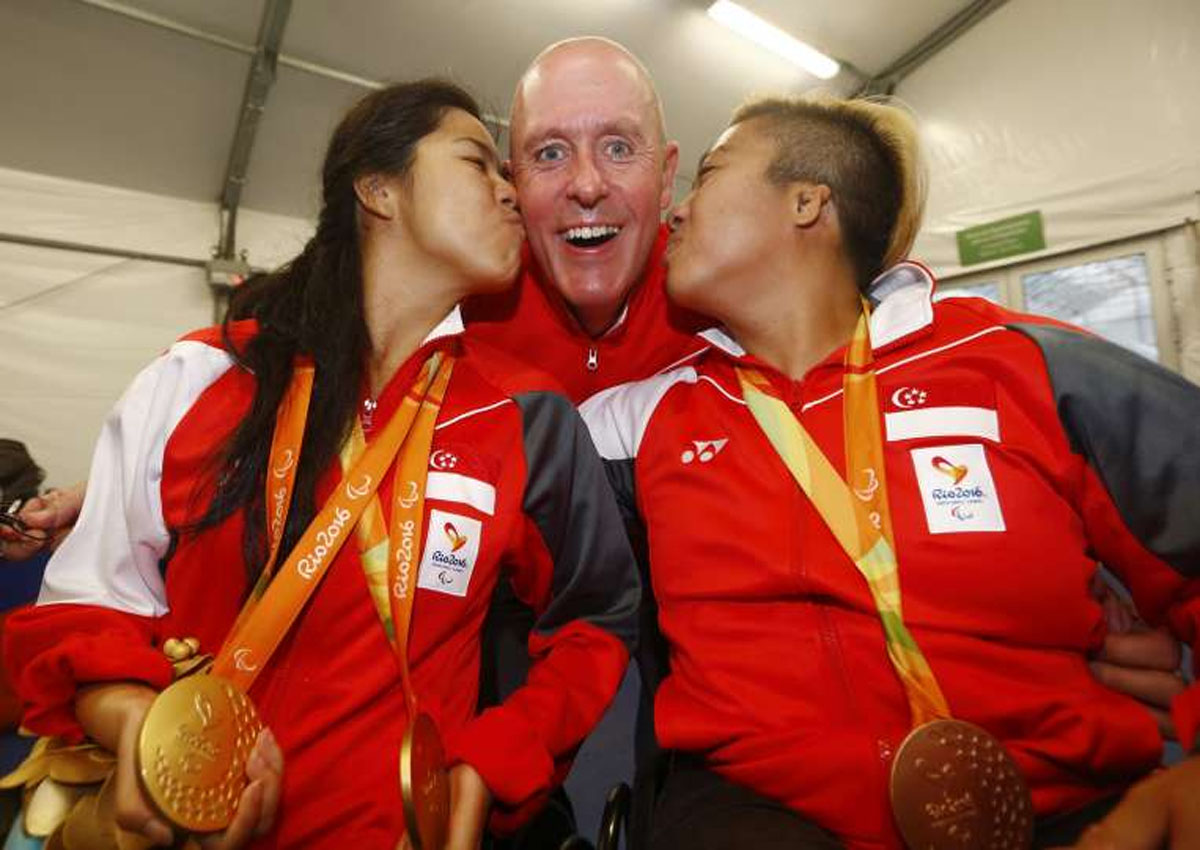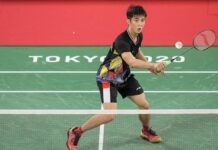In a mere 20 months, he shaped Yip Pin Xiu into a double Paralympic champion and ended Theresa Goh’s 17-year wait for a Paralympic medal.
Many have looked to swimming coach Mick Massey as the key reason for Singapore’s three-medal harvest at the Rio Games, but the Briton modestly played down his role in transforming the swimmers’ fortunes.
There is no silver bullet, no major overhaul. Instead, the trio relied on old and reliable virtues as their basis for success.
The former British Paralympic head coach told The Straits Times in a phone interview from Rio de Janeiro: “For example, Pin Xiu’s very intelligent and determined. In training, when I give her targets, she rarely fails to meet them.
“She knows what’s best for her more than I do. She makes my job easier, if I’m really truthful.”
Another key is trust. Massey, whose daughter Natalie represented Britain at the 2012 Paralympics, said: “It takes a lot to build that relationship with a swimmer where they can actually trust you and not be afraid to come and speak to you.”
So if Yip was tired, she would tell Massey, who trusted that his swimmer was not taking the easy way out.
It helps that the coach is also attuned to Yip’s competitiveness.
An example of Pin Xiu’s inherent drive, and the moment that convinced the coach that his protege was on to something special, came three months ago during the annual IDM Berlin swim meet.
While they were discussing strategy over breakfast,Yip was so tired she dozed off mid-conversation.
Massey, who was trying out an intense training programme with the swimmers then, said: “We had trained through the meet, we didn’t rest at all. It was very unusual, and I thought, ‘Blimey, she’s really suffering.’ I was really worried.”
He was on his way to the airport to catch an earlier flight back to Singapore when he learnt that Yip had clocked 2min 10sec for her 100m backstroke (S2) race, just off her then-world record mark of 2min 9.79sec.
“I was just shocked. I thought she was joking,” said Massey. “But that’s PX. She is a fighter, she will not yield. Even if she’s tired, she’ll give everything she’s got.
“That (incident) sort of told me what sort of shape PX was in – she was in amazing shape.”
When he first began training the two para-swimmers, he took pains to slowly build up their workload, and used his experience of coaching para-swimmers since 2001 to make tweaks to their training regimen.
Both Yip and Goh were recovering from injuries then, and were not training much. Aware that the Rio Paralympics were the ultimate goal, he took weeks to increase their load to the current 2.25km they swim per session.
He would also pace the pool deck while Yip swam, to pick up signs indicating her form, such as the way she floated, her body position in the water, and how she tended to clench her fists tightly if she’s tired.
That effort to understand Yip’s condition convinced him to get her re-classified from S3 to S2. In para-swimming, the lower the classification number, the more severe the athlete’s disability.
Massey also made sure Goh and Yip, who usually swim different strokes at different paces, swim side by side by varying the distance of their respective sets, as “it is very difficult to swim alone”.
Massey, who has coached the likes of British Paralympic champions Natalie Jones and Jim Anderson in his previous job, said: “Your programme has to be flexible enough to accommodate them, especially if the swimmer has a complex disability. For me personally, that’s the most skilful part of my job.”
One thing that did happen by chance was Massey’s appointment as their coach.
In 2014, he came to Singapore as coach of Dulwich College (Singapore), an international school in Bukit Batok. He was then approached by the Singapore Disability Sports Council and Singapore Sports Institute to coach Yip and Goh.
Massey said he is grateful to Dulwich headmaster Nick Magnus for granting him time away from work and added: “Coming to Singapore was the best decision.
“I love the people, it’s a fantastic place to live and work in.”
On what lies ahead for Yip, he said: “I’m convinced she can go on to Tokyo, absolutely, without any shadow of a doubt. But whatever happens after that, I’d like to feel that we can end up as friends because of what we do together.”

This article was first published on September 19, 2016.
Get a copy of The Straits Times or go to straitstimes.com for more stories.


















































































.jpg)

























































